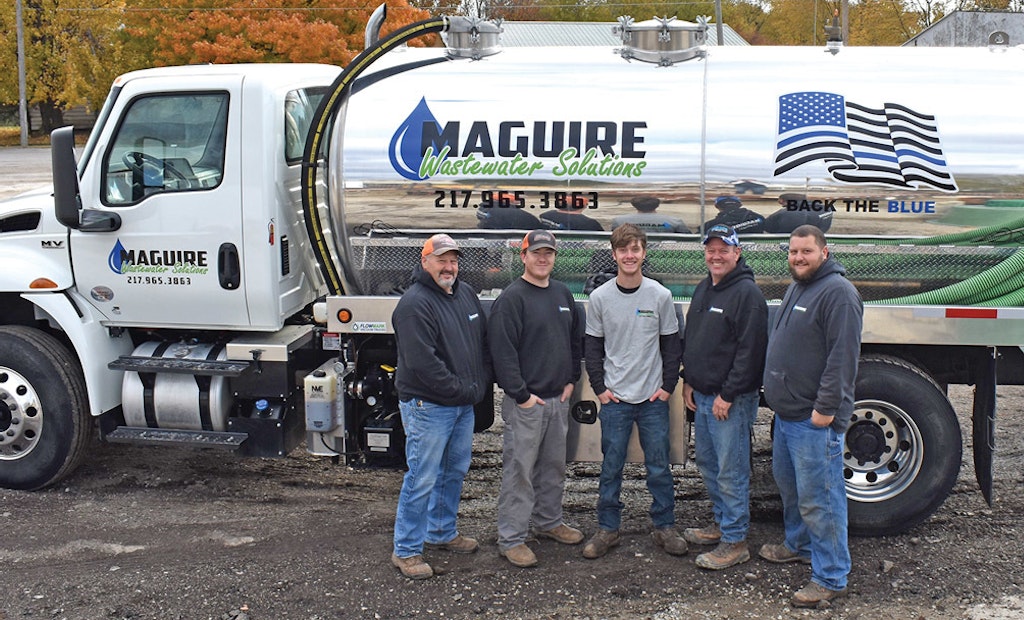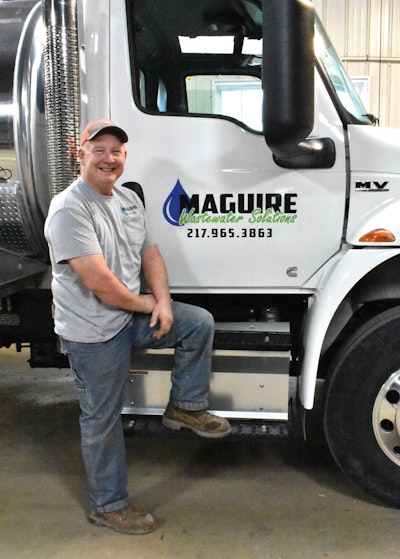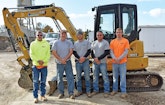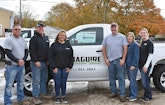
The service crew includes, from left, Rory Rossi, Nick Watson, Kaden Gray, Steve Matli and Craig Jordon. The vacuum truck is a 2020 International with a 2500-gallon FlowMark aluminum tank and NVE 607 pump.
In Snapshot, we talk to a member of a state, provincial or national trade association in the decentralized wastewater industry. This time we visit a member of the Onsite Wastewater Professionals of Illinois.
Name and title or job description: Rick Maguire, co-owner with wife...








